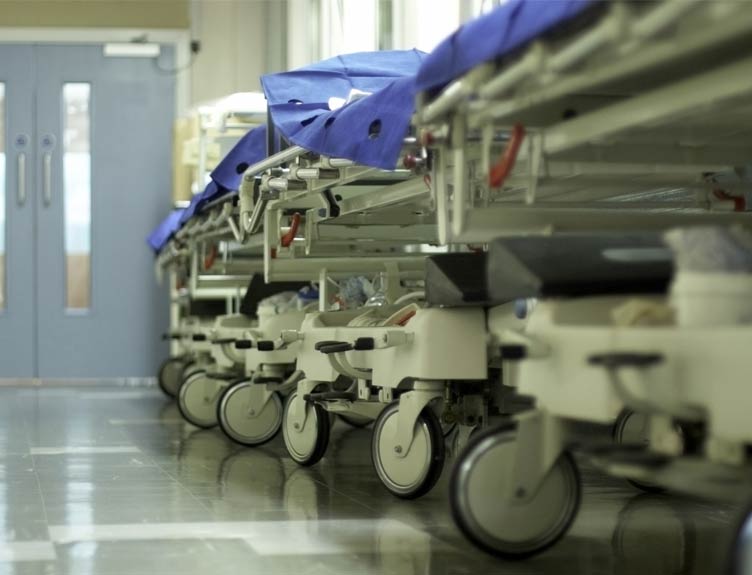Professor John Hyland, RCSI President, on Ireland's trolley crisis

This opinion piece was originally published in the Irish Independent on Thursday, 11 January 2018.
The current overcrowding situation in hospitals around the country is a source of serious distress, for patients and for healthcare staff. It is wholly appropriate and welcome that so much public discourse is centered on the cause of the crisis and potential solutions.
There is a serious risk, however, that the singular focus on Emergency Departments may result in another crisis being missed and, indeed, made worse. As Emergency Departments creak under the pressure of patients requiring assessment and admission, non-urgent elective surgery appointments are being cancelled repeatedly to free up beds for emergency cases.
It is important to remember that “elective” surgery doesn’t mean optional surgery. The people on elective surgery waiting lists really need surgery. There are patients who have been waiting in pain for up to two years for their hip replacement so that they can walk again, men who must continue to have a bladder catheter while waiting for prostate surgery, women with excruciating uterine bleeding waiting for a hysterectomy, patients with chest pains living in fear of a fatal heart attack while waiting for cardiac surgery.
These patients are in need of timely surgical care to alleviate pain and suffering as well as to provide best chances of positive outcomes from their disease. They are often anxious. They will have made arrangements to take time off for surgery, and to have care afterwards. It is not acceptable that their surgeries are cancelled.
In fact, it would be more accurate if such urgent and necessary surgery was referred to as “scheduled” surgery.
As ill patients have their surgery postponed, they add further to waiting lists. The longer a patient is waiting for scheduled care, the more likely they will end up coming into the system as an emergency case. Tackling something apparently minor, like a hernia for example, as a scheduled procedure can prevent it becoming an acute problem which results in the patient turning up at the Emergency Department. The failure to protect scheduled surgery is setting the system up for major long-term problems and will result in people getting sicker than they should. When they come in, there will be a desperate search for bed for them, and more surgery will be cancelled, and on and on it goes.
The regular cancellation of scheduled surgery has another impact, which is on the recruitment and retention of specialist doctors. Highly trained specialists who take up consultant posts in Ireland regularly find their surgery list cancelled due to the latest bout of Emergency Department overcrowding. It demoralises and frustrates them. The chaos involved in many medical specialties causes stress and burnout among those working in the system, and it puts many off applying for posts in Irish hospitals in the first place.
Clearly the political priority now is to reduce the number of people waiting on trolleys, and we agree that an immediate solution needs to be found that allows people to be treated with greater dignity. We must now, however, start taking a longer term approach to resolving the issues in our health service. Sacrificing the needs of one group of patients in order to fight a fire at the front door of the hospital is not right and it is not sustainable.
We need to identify a long-term, sustainable way of minimising waiting periods for scheduled procedures, and preventing surgical procedures being cancelled because of the pressure of emergency admissions. It is RCSI’s view that the only long-term, sustainable solution is to ring fence beds for scheduled, non- emergency surgery and to enable the Hospital Groups to manage this. In some hospital groups there may be opportunities to have a dedicated hospital for planned scheduled non-emergency surgery.
There must be dedicated space found within the public hospital system to allow scheduled surgical procedures to be carried out, and for that space to be protected at all times, including during overcrowding crises.
One simple measure would be to ensure scheduled and necessary surgery is done in hospitals which don’t have an Emergency Department. This would have no impact on emergency services, nor would beds used for scheduled surgery be open to being requisitioned for emergency patients.
In September last there were 73,000 patients on waiting list for scheduled surgery. With our acute hospitals clearly unable to cope, the solution on offer is the National Treatment Purchase Fund, which funds treatment for waiting list patients in private hospitals or abroad, largely in the UK. This is really a piece of short-term crisis management, though it is obviously very welcome for those whose treatment is provided under it. It provides relief for the patients who finally get their surgery in this way but it is not a long-term solution for the hospital system: the waiting list builds up again because the underlying shortage of capacity remains.
Without long-term structural change, we are doomed to repeat the same chaos, year after year. Waiting lists for surgery will increase, and morning radio shows will open in January after January with the latest dreary and depressing trolley count from around the country. The repetitiveness of the story gives ammunition to those who say that the situation is hopeless.
It isn’t. There are solutions available. We need to agree them and implement them.



